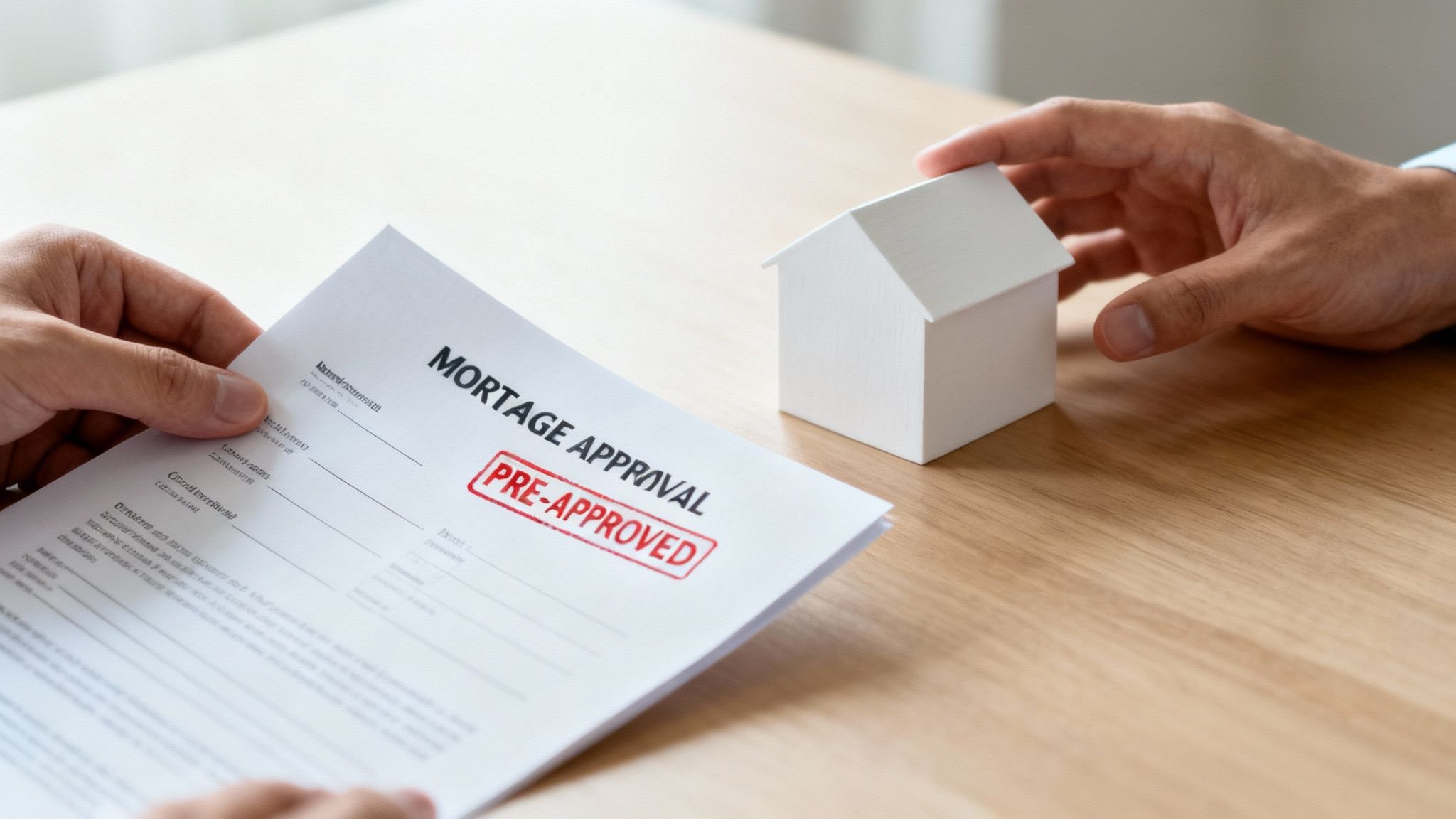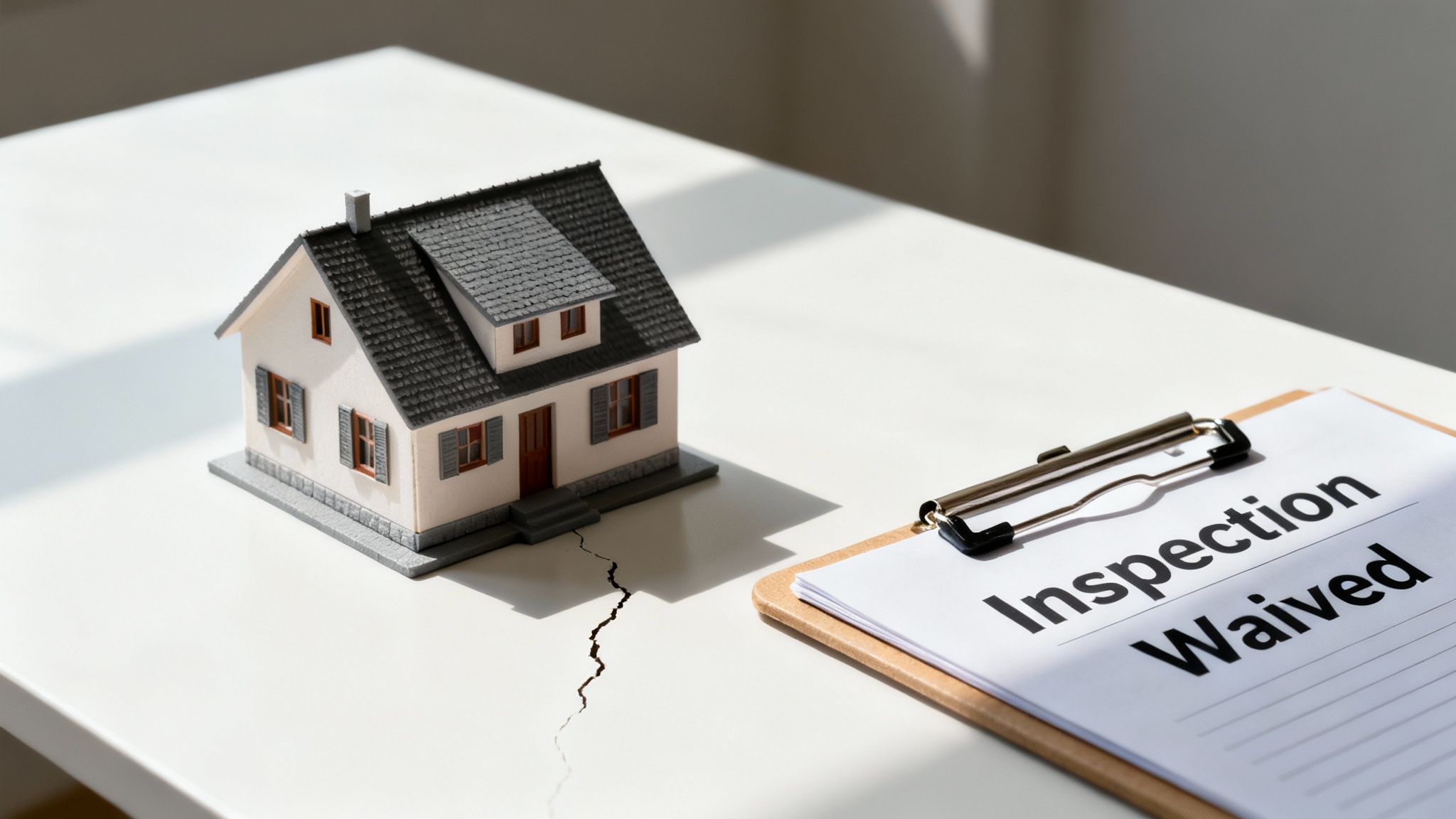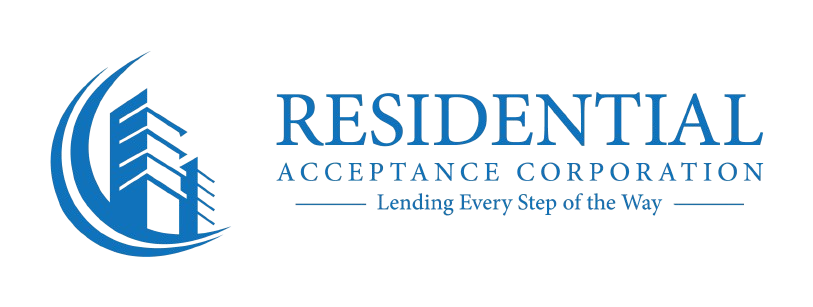Buying your first home in Tampa is an exciting milestone, but the path to homeownership is filled with potential pitfalls that can turn your dream into a stressful ordeal. Many eager buyers, swept up in the thrill of finding the perfect property, make preventable first time home buyer mistakes that can cost them thousands of dollars and derail their plans. This guide is specifically designed to illuminate the most common missteps and provide clear, actionable strategies to help you avoid them.
By understanding these challenges upfront, you can navigate the competitive Tampa real estate market with confidence and clarity. We'll break down everything from the critical importance of mortgage pre-approval and credit scores to the often-overlooked total costs of homeownership. This isn't just a list of warnings; it's a strategic roadmap for a smarter purchase.
At Residential Acceptance Corporation (RAC Mortgage), our mission is to empower Tampa's first-time buyers with the essential knowledge and tailored financing solutions needed for a smooth and successful journey. Consider this your definitive resource for sidestepping common errors and securing your future home with a solid financial foundation, ensuring your first major investment is a resounding success.
1. Not Getting Pre-Approved for a Mortgage
One of the most common first time home buyer mistakes is jumping into house hunting without first securing a mortgage pre-approval. Many buyers fall in love with homes they see online, only to discover later that they don't qualify for the necessary loan amount. This approach leads to disappointment and wasted time, a significant disadvantage in a competitive market like Tampa.

A mortgage pre-approval is a conditional commitment from a lender, like RAC Mortgage, that you are qualified to borrow a specific amount. It involves a thorough review of your financial history, including your income, assets, and credit score. This isn't just a simple online calculator; it's a formal step that proves your financial readiness to sellers.
Why Pre-Approval is Non-Negotiable
In Tampa's fast-paced real estate scene, a pre-approval letter transforms you from a window shopper into a serious contender. Sellers are more likely to accept an offer from a buyer who has already been vetted by a lender, as it reduces the risk of the deal falling through due to financing issues. It also gives you a firm, realistic budget, preventing you from overextending your finances.
Actionable Steps for Success
- Secure Pre-Approval First: Before you even browse listings, connect with a dedicated lender. This sets a solid foundation for your entire home search.
- Maintain Financial Stability: Once pre-approved, avoid making large purchases, changing jobs, or taking on new debt. These actions can jeopardize your final loan approval.
- Review All Documents: Carefully check the details on your pre-approval letter for accuracy.
Getting pre-approved is a critical first step. For a complete guide on the process, you can find out how to get pre-approved for a mortgage on racmortgage.com.
2. Ignoring or Neglecting Credit Score
Another significant misstep among first time home buyer mistakes is underestimating the power of a credit score. Many buyers in the Tampa area begin their search without understanding how this three-digit number directly influences their mortgage eligibility and, more importantly, the interest rate they will pay for the next 30 years.
Your credit score is a numerical summary of your credit history, signaling to lenders like RAC Mortgage how reliably you manage debt. A lower score suggests higher risk, often resulting in a higher interest rate or even loan denial. For instance, a Tampa buyer with a 620 score might pay a significantly higher interest rate than a buyer with a 760 score, potentially adding over $100,000 in interest payments over the life of a typical loan.
Why Your Credit Score is Crucial
In a competitive market, a strong credit score gives you a powerful advantage. It unlocks better mortgage rates, which means a lower monthly payment and substantial long-term savings. Lenders are more confident in borrowers with a proven history of financial responsibility, making the entire approval process smoother and more predictable. A healthy score is your financial leverage.
Actionable Steps for Success
- Review Your Credit Early: Check your credit reports from all three bureaus 6-12 months before you plan to buy. You can do this for free at AnnualCreditReport.com.
- Dispute Any Errors: Immediately challenge any inaccuracies you find on your report, as removing them can provide a quick boost to your score.
- Manage Your Debts: Focus on paying bills on time, every time. Aim to keep your credit card balances below 30% of their limits to improve your utilization ratio.
- Avoid New Credit: Refrain from opening new credit cards or taking out other loans in the months leading up to your mortgage application.
Proactively managing your credit is a key step toward affordable homeownership. To build a stronger financial profile, discover how to improve your credit score for a mortgage on racmortgage.com.
3. Insufficient Down Payment Planning
Underestimating the required down payment is one of the most significant first time home buyer mistakes. Many aspiring homeowners focus solely on the 20% myth, not realizing that various options exist, or they fail to save enough, leading to higher monthly costs or an inability to close on their dream home in competitive areas like Tampa. Insufficient planning can significantly impact the long-term affordability of your mortgage.
A down payment is the portion of the home's purchase price you pay upfront, and it directly affects your loan amount and terms. While a 20% down payment helps you avoid Private Mortgage Insurance (PMI), many loan programs, especially for first-time buyers, require as little as 3-5%. However, a smaller down payment often means you'll have PMI, an extra monthly fee that protects the lender.
Why Down Payment Planning is Crucial
Properly planning your down payment strategy is vital for your financial health. A larger down payment can lower your monthly mortgage payment, reduce the total interest paid over the life of the loan, and help you build equity faster. For example, on a $350,000 Tampa home, a 10% down payment ($35,000) is more achievable upfront than 20% ($70,000) but could add around $200 per month in PMI costs.
Actionable Steps for Success
- Start Saving Early: Begin setting aside funds for your down payment at least two to three years before you plan to buy.
- Explore Assistance Programs: Research programs that can help cover your down payment and closing costs. These are often grants or low-interest loans designed for first-time buyers.
- Calculate Total Costs: Work with a lender like RAC Mortgage to understand how different down payment amounts will affect your monthly payment, including PMI, over the entire loan term.
Don't let a lack of funds derail your homeownership goals. You can learn more about down payment assistance programs on racmortgage.com to see what options are available to you.
4. Making Large Purchases Before Closing
One of the most dangerous first time home buyer mistakes is assuming your finances are locked in after pre-approval. Many excited buyers make large purchases for their new home, like furniture or appliances, before the deal is officially closed. This can abruptly halt the entire process, as lenders perform a final credit and financial check just before closing day.
Any significant change to your financial profile, such as a new car loan or a large credit card balance, alters your debt-to-income (DTI) ratio. For example, a buyer approved for a mortgage in Tampa might finance a new car two weeks before closing. This new debt could push their DTI ratio above the lender's limit, leading to the mortgage approval being withdrawn at the last minute and the home purchase falling through.
Why Financial Stability is Crucial
Your mortgage approval is conditional upon your financial situation remaining stable from application to closing. A new loan or a sudden drop in your bank account balance signals increased risk to the lender. Even opening a new store credit card to get a discount on a refrigerator can lower your credit score and jeopardize your home loan. Lenders like RAC Mortgage need to ensure you can still comfortably afford the mortgage payment with any new financial obligations.
Actionable Steps for Success
- Freeze Major Spending: Wait until after you have the keys to your new home before making any large purchases or applying for new credit.
- Maintain Stable Finances: Avoid changing jobs, making large cash deposits or withdrawals, or co-signing loans for anyone.
- Communicate with Your Lender: If a significant financial change is unavoidable, discuss it with your loan officer at RAC Mortgage immediately to understand the potential impact.
Keeping your finances consistent is the key to a smooth closing. Treat the period between pre-approval and closing as a financial quiet period.
5. Skipping the Home Inspection
In a competitive market, some buyers might consider waiving the home inspection to make their offer more attractive. This is one of the most significant and potentially costly first time home buyer mistakes you can make. The few hundred dollars saved on an inspection could easily be dwarfed by thousands in unexpected repairs for hidden issues.

A home inspection is a thorough, top-to-bottom examination of the property's condition, conducted by a qualified professional. It covers everything from the foundation and roof to the electrical and plumbing systems. This report provides a detailed picture of the home's health, alerting you to problems that aren't visible during a typical walkthrough. For example, a buyer in Tampa might waive the inspection on a $350,000 home only to later discover $45,000 in foundation damage.
Why a Home Inspection is Crucial
The inspection report is a powerful negotiation tool. If significant issues are found, you can ask the seller to make repairs, provide a credit, or lower the purchase price. More importantly, it gives you the option to walk away from the deal if the problems are too extensive, protecting you from a disastrous financial commitment. Without it, you are buying the property "as-is," along with all its hidden flaws.
Actionable Steps for Success
- Always Include an Inspection Contingency: Make your offer contingent on a satisfactory home inspection. This protects your earnest money deposit.
- Hire a Certified Professional: Look for an inspector certified by a reputable organization like the American Society of Home Inspectors (ASHI).
- Attend the Inspection: Walk through the property with the inspector. This is an invaluable opportunity to learn about your potential new home and ask questions directly.
- Negotiate Based on Findings: Use the inspection report to address any major issues with the seller before closing.
6. Not Getting a Professional Home Appraisal
A critical, yet often misunderstood, step in the home buying process is the professional home appraisal. This is one of the more technical first time home buyer mistakes, as many buyers assume the appraisal is just a formality for the lender. In reality, it's an impartial assessment of a property's market value, which directly impacts your loan and protects you from overpaying.
An appraisal is an unbiased, professional opinion of a home's worth. A licensed appraiser evaluates the property's condition, size, features, and location, comparing it to similar, recently sold homes in the Tampa area. Lenders, including RAC Mortgage, require an appraisal to ensure the property's value is sufficient to secure the loan amount.
Why the Appraisal is Your Financial Safeguard
If your offer is $350,000 but the home appraises for only $330,000, a lender will not finance the $20,000 gap. This "appraisal gap" can kill a deal if not handled correctly. Understanding the appraisal's role empowers you to navigate this situation, whether by renegotiating the price with the seller, challenging the appraisal with new data, or coming up with the difference in cash. It prevents you from starting your homeownership journey with negative equity.
Actionable Steps for Success
- Understand Its Purpose: Recognize that the appraisal protects your investment just as much as it protects the lender.
- Provide Key Information: Give the appraiser a list of recent home improvements and upgrades, as this information can positively influence their valuation.
- Challenge a Low Appraisal: If the appraisal comes in unexpectedly low, work with your real estate agent and lender to review the report for errors or outdated comparable sales and consider filing an appeal.
- Negotiate Strategically: Use a low appraisal as leverage to renegotiate a lower purchase price with the seller.
7. Not Understanding the Total Cost of Homeownership
One of the most significant first time home buyer mistakes is focusing solely on the mortgage payment. Many buyers budget for their monthly principal and interest but overlook the other substantial expenses, leading to a "house poor" situation where their budget is stretched thin. The true cost of owning a home can be 30-50% higher than the mortgage alone.

The total cost of homeownership, often referred to as PITI-A, includes Principal, Interest, Taxes, Insurance, and sometimes Association (HOA) fees. For example, a $2,000 mortgage payment on a home in Tampa could easily become $2,600 or more per month once you add property taxes ($350), homeowners insurance ($150), and potential HOA fees ($100). This doesn't even account for utilities, maintenance, and unexpected repairs.
Why a Full Budget is Non-Negotiable
Failing to budget for these additional costs can create immense financial stress. An unexpected roof repair ($2,000-$5,000) or a new furnace ($5,000-$8,000) can quickly drain savings if you aren't prepared. Understanding the complete financial picture ensures you choose a home you can comfortably afford long-term, not just on closing day. This comprehensive approach is essential for sustainable homeownership.
Actionable Steps for Success
- Calculate Total Costs: Before making an offer, research property tax rates for the specific Tampa neighborhood, get homeowners insurance quotes, and verify any HOA fees.
- Budget for Maintenance: A good rule of thumb is to set aside 1-2% of your home's value annually for maintenance and repairs.
- Build an Emergency Fund: Have a separate savings account dedicated to unexpected home repairs to avoid going into debt.
Planning for the total cost is a critical step. A knowledgeable lender like RAC Mortgage can help you estimate these expenses during the pre-approval process to ensure your budget is realistic.
8. Choosing the Wrong Loan Type or Terms
One of the most critical first time home buyer mistakes is selecting a mortgage without fully understanding the different types and terms available. The loan product you choose significantly impacts your monthly payment, the total interest you pay, and your financial stability for years. Buyers in Tampa might be tempted by an initially low payment on an Adjustable-Rate Mortgage (ARM), only to face a steep increase later.
Navigating options like FHA, VA, Conventional, fixed-rate, and ARMs can be overwhelming. For example, a 30-year fixed-rate loan offers a predictable payment, making budgeting easier, while a 15-year loan builds equity faster but comes with a higher monthly cost. Choosing incorrectly can lead to payment shock, where an ARM payment on a Tampa home jumps from $2,000 to over $2,800 when the initial fixed period ends.
Why the Right Loan is Crucial
Selecting the appropriate loan aligns your mortgage with your long-term financial goals. A stable, fixed-rate loan is often the safest bet for first-time buyers, providing protection against rising interest rates. On the other hand, if you plan to sell the home before an ARM's rate adjusts, it could be a strategic choice. Working with an experienced lender like RAC Mortgage ensures you evaluate all variables to find the most suitable and sustainable option for your situation.
Actionable Steps for Success
- Prioritize Stability: For most first-time buyers, a 30-year fixed-rate mortgage offers the best combination of manageable payments and predictability.
- Understand the Trade-Offs: Compare the total interest paid on a 15-year versus a 30-year loan to see the long-term cost differences.
- Consult a Professional: Work closely with your mortgage professional to analyze different loan scenarios and find the product that fits your financial profile and homeownership goals.
9. Neglecting Location and Market Research
A significant and often costly entry in the list of first time home buyer mistakes is focusing entirely on the features of a house while ignoring the surrounding location and market conditions. You can change almost anything about a home's interior, but you can't change its location. A perfect house in an undesirable or depreciating area can quickly turn into a source of regret and a poor investment.
Thorough location and market research involves looking beyond the property line. It means investigating school district ratings, crime statistics, local employment trends, and proposed future developments. For example, a home in a rapidly developing Tampa neighborhood may appreciate faster, while one near a planned industrial zone could see its value stagnate or decline.
Why Location Research is Your Best Investment
In a dynamic market like Tampa, understanding neighborhood trends is crucial for long-term satisfaction and financial growth. A desirable location enhances your quality of life and protects your investment. It ensures your daily commute, access to amenities, and community environment align with your lifestyle. Ignoring these factors can lead to unforeseen frustrations and financial loss.
Actionable Steps for Success
- Visit at Different Times: Experience the neighborhood during the day, at night, and on weekends to understand noise levels, traffic, and the general atmosphere.
- Research Local Plans: Check with the city or county planning department for any future projects like new roads, commercial centers, or zoning changes that could impact the area.
- Talk to the Neighbors: Current residents can provide invaluable, firsthand insights into the community, its pros and cons, and any potential issues not obvious to outsiders.
- Analyze Market Data: Look at 5 to 10-year property value trends for the specific neighborhood to understand its historical performance and future potential.
10. Inadequate Emergency Fund and Financial Reserves
A critical, yet often overlooked, first time home buyer mistake is draining every last dollar of savings for the down payment and closing costs. While focusing on securing the home is understandable, this all-in approach leaves new homeowners financially vulnerable. Without a safety net, an unexpected major repair or job loss can quickly escalate into a financial crisis.
Your emergency fund is a separate, liquid savings account meant to cover unforeseen expenses, not your home purchase. Think of it as a financial firewall between you and high-interest debt when the furnace unexpectedly dies in your new Tampa home or a medical bill arrives. Depleting this fund to buy a house is a high-risk gamble that can jeopardize your new investment.
Why Financial Reserves are Non-Negotiable
Owning a home comes with unpredictable costs that go far beyond the monthly mortgage payment. A robust emergency fund provides peace of mind and financial stability, ensuring you can handle these surprises without derailing your budget or, in a worst-case scenario, risking foreclosure. It’s the buffer that transforms homeownership from a source of stress into a source of security.
Actionable Steps for Success
- Separate Your Savings: Maintain a dedicated emergency fund with 6-12 months of living expenses, completely separate from your down payment savings.
- Budget for Maintenance: Plan to set aside 1-2% of your home's purchase price annually for maintenance and repairs.
- Build a Buffer: Before closing, ensure you have sufficient funds to cover closing costs and still have your emergency reserves fully intact.
- Keep it Liquid: Your emergency fund should be held in an easily accessible savings account, not tied up in investments.
Top 10 First-Time Homebuyer Mistakes Comparison
| Item | 🔄 Implementation complexity | ⚡ Resource requirements | ⭐ Expected outcomes | 📊 Ideal use cases | 💡 Key advantages / Tips |
|---|---|---|---|---|---|
| Not Getting Pre-Approved for a Mortgage | Low — easy to skip but removes structure | Moderate if obtaining pre-approval (docs, credit pull, lender time) | Weakened offers, wasted time, unclear budget | Only acceptable for all-cash buyers or very informal searches | Get pre-approved before house hunting; connect with RAC Mortgage |
| Ignoring or Neglecting Credit Score | Medium — requires sustained management | Time and effort to monitor, dispute errors; possible short-term credit impact when fixed | Higher interest rates or denial; large lifetime cost differences | Rarely acceptable; only for cash buyers or immediate purchases | Check reports 6–12 months out; target 740+; reduce utilization |
| Insufficient Down Payment Planning | Medium — requires multi‑month/yr savings plan | Significant cash savings; research into assistance programs | PMI, higher loan costs, limited options, risk of negative equity | Use assistance programs or when preserving liquidity is critical | Aim for 20% to avoid PMI; research state/local aid |
| Making Large Purchases Before Closing | Low — behavioral change | Minimal cost but high credit/debt impact | Credit score drop, DTI increase, possible loan withdrawal | Never between pre-approval and closing | Freeze major purchases; notify lender of changes |
| Skipping Home Inspection | Low (decision) but high risk | $300–500 inspection cost and ~3–4 hours | Hidden structural/health issues; expensive unexpected repairs | Only for rare cash buyers willing to accept full risk | Always include inspection contingency; hire certified inspector |
| Not Getting a Professional Home Appraisal | Low — lender usually orders it; buyer can supplement | $400–600 and documentation of comps/improvements | Low appraisal may force extra cash or renegotiation | When valuation is uncertain or comps are sparse | Provide comps to appraiser; appeal low valuations |
| Not Understanding Total Cost of Homeownership | Medium–High — ongoing calculation & research | Time to research taxes, insurance, HOA, maintenance; use calculators | Underbudgeting; surprise monthly/annual costs; financial strain | Essential for all buyers; critical for tight budgets | Calculate total monthly cost; budget 1–2% of value for maintenance |
| Choosing Wrong Loan Type or Terms | High — requires comparison and forecasting | Time with brokers/lenders; possible fees; long-term rate risk | Payment shock, excess interest, reduced affordability | Fixed 30‑yr for most first‑time buyers; ARM only if short-term plan | Compare total interest; prefer fixed-rate for stability |
| Neglecting Location and Market Research | Medium — research and site visits required | Time for visits, data checks (schools, crime, plans), market analysis | Poor resale, regret, unexpected neighborhood issues | Buyers planning to stay 5–10+ years; investors | Visit at different times; check schools/crime/planning docs |
| Inadequate Emergency Fund and Financial Reserves | Medium — disciplined saving required | 6–12 months living expenses plus separate closing/down payment funds | Vulnerability to repairs, job loss, potential default or high-cost debt | Delay purchase until reserves built; essential for stability | Keep emergency fund separate; do not deplete savings for closing |
Partner with the Right Team for Your First Home
Navigating the path to homeownership for the first time is one of life’s most significant milestones. As we've detailed, the journey is filled with potential pitfalls, but understanding these common first time home buyer mistakes is the most powerful tool you have to ensure a smooth and successful experience. From securing a mortgage pre-approval to meticulously planning your budget for the total cost of ownership, each step you take builds the foundation for your future financial well-being.
The process can feel overwhelming, but it doesn’t have to be. The key takeaway from this guide is that preparation and partnership are paramount. By proactively addressing your credit, saving diligently for a down payment and reserves, and committing to thorough research, you transform from an anxious first-time buyer into an empowered and informed consumer. Resisting the urge to make large purchases before closing and insisting on professional inspections and appraisals are not just checklist items; they are critical safeguards for your investment.
From Knowledge to Action: Your Next Steps
The difference between a stressful home buying journey and a rewarding one often comes down to the team you assemble. Avoiding these mistakes is far easier when you have experienced professionals guiding you. The insights shared here are your starting point, but the real advantage comes from personalized advice tailored to your unique financial situation and goals, especially within the competitive Tampa housing market.
Your immediate actions should be clear:
- Review Your Finances: Take a hard look at your budget, savings, and credit report. Identify areas for improvement and start making positive changes today.
- Define Your Goals: What are you truly looking for in a home? Consider location, size, and long-term livability, not just cosmetic features.
- Seek Expert Guidance: Connect with a trusted mortgage professional who can translate your financial picture into a realistic home buying strategy.
Ultimately, mastering this process is about more than just avoiding errors; it’s about building confidence and setting yourself up for long-term success as a homeowner. The decisions you make now will impact your life for years to come. By arming yourself with knowledge and partnering with a dedicated team, you can confidently step onto the property ladder and turn your dream of owning a home into a tangible, rewarding reality.
Ready to avoid these common first time home buyer mistakes and start your journey with a trusted local expert? The Tampa-based team at Residential Acceptance Corporation specializes in guiding first-time buyers through every step, from pre-approval to closing. Partner with us to navigate the complexities of the mortgage process with clarity and confidence by visiting Residential Acceptance Corporation to get started today.

